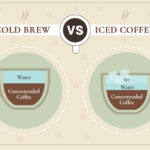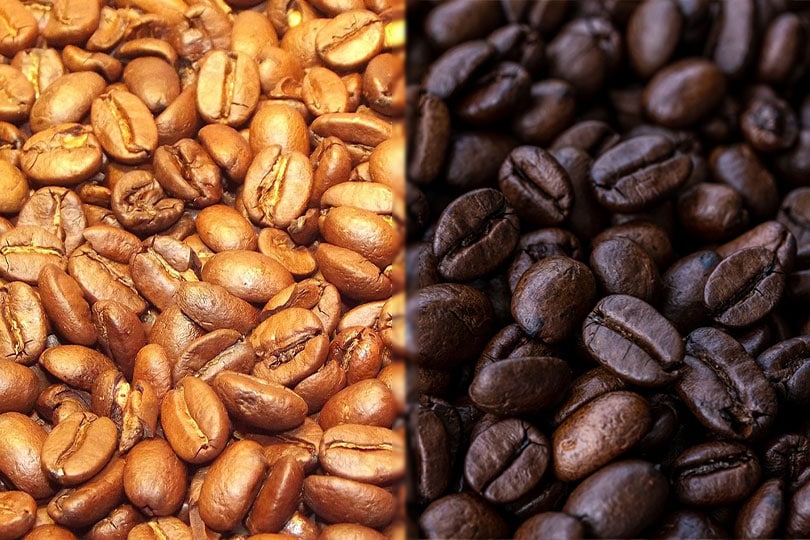
Roughly 200 million men and women in the US start their days with coffee, and staying on autopilot through this morning ritual is as easy as breathing. But perhaps your morning sugar intake has you hesitating as you put another scoop of sweetener into your mug.
There are lots of ways to take your coffee, ranging from bold and black to milky, creamy, or with a dash of nutmeg. As you know, anything that strays from a classic black coffee runs the risk of becoming unhealthy. If you like to cut the bold coffee flavor with plenty of sugar, there are healthier alternatives to sweeten your day.
Before we proceed, it is important to remember that “counting calories” should not be the only determining factor in what is considered healthy. Our bodies are in constant need of vitamins and minerals that do not often show up on a food nutrition label. With that in mind, you’ll find some classic options below, as well as a few oddball options that are worth your time.
Top 2 Natural Sugar Alternatives
1. Raw Honey

You’re probably thinking: doesn’t honey have more calories in it than table or raw sugar? Yes, it does. However, honey does wonders for you in the blood sugar department. It provides you with magnesium, potassium, and B vitamins, as well as anti-fungal and anti-bacterial agents that aid in digestion. The different flavors of honey will provide you with the desired options for taste and allow you to mix up your routine from time to time. Keep in mind that this is raw honey, not processed honey.
2. Maple Syrup

Maple syrup also sounds like a sugar-coated trap, but it is not. Much like its close relative, raw honey, all-natural maple syrup offers many vitamins that we lose out on in our diets and has added digestive benefits. Also known as “nature’s syrup,” this healthy option targets heart health and the male reproductive system. Maple syrup also has a unique flavor, so it may take some getting used to in your coffee.
Top 2 Sugar Replacements
3. Stevia
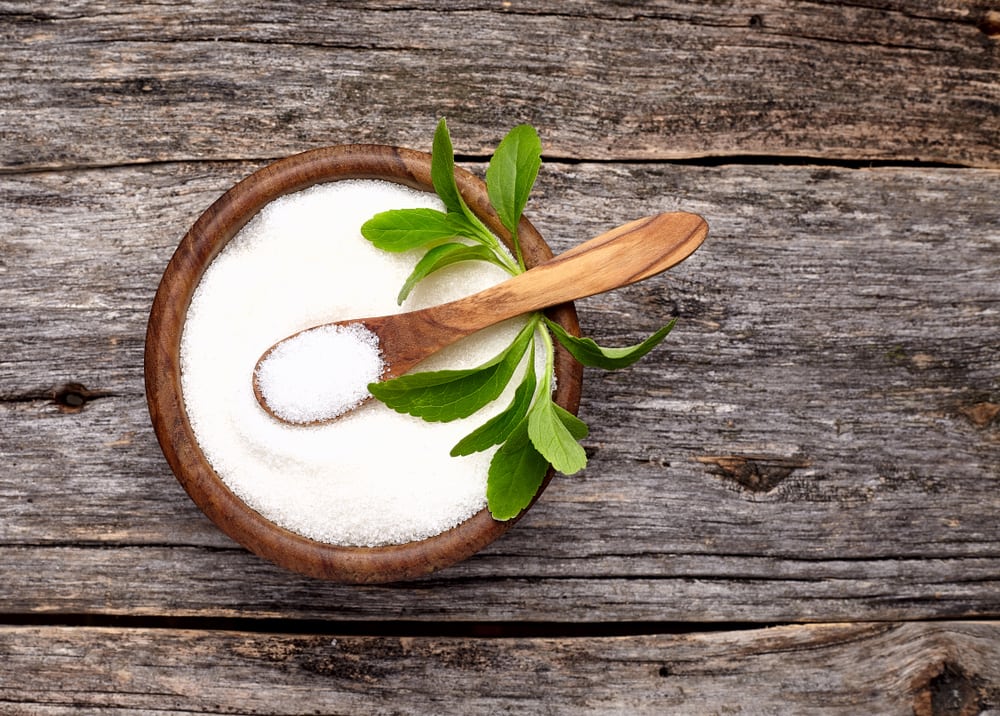
If you aren’t comfortable with sweeteners that have a higher calorie count than table sugar, perhaps Stevia is a better alternative. It’s extracted from the Stevia rebaudiana plant found in South America and has been used for centuries for medicinal purposes. More importantly, it’s about two hundred times sweeter than sugar and still has zero calories. Many people are put off by Stevia’s aftertaste, but if you can adjust to it, it could be the right pick for you. Stevia is also very easy to find in your local grocery store and online.
4. Erythritol
Try not to be put off by the name, as erythritol has just as many health benefits as Stevia and other leading competitors. It’s essentially a sugar alcohol that’s extracted from various fruits, and is void of any specific fruity flavors. In fact, many reviewers have noted that the aftertaste is very mild compared to Stevia. If you aren’t looking to change your vitamin intake or your blood sugar, erythritol has virtually zero effect, positive or negative, on your health. We can consider it healthy because it doesn’t have the negative effects that regular sugar does.
Top 2 Spices For Your Coffee
5. Cinnamon

Sometimes, when considering a healthier alternative to sugar, we neglect the idea of spices. Cinnamon will change the overall flavor of your coffee, but it has also been known to boost your immune system. This spice could be an easy way to get those extra antioxidants in where your daily nutrition is lacking, not to mention the taste!
6. Nutmeg
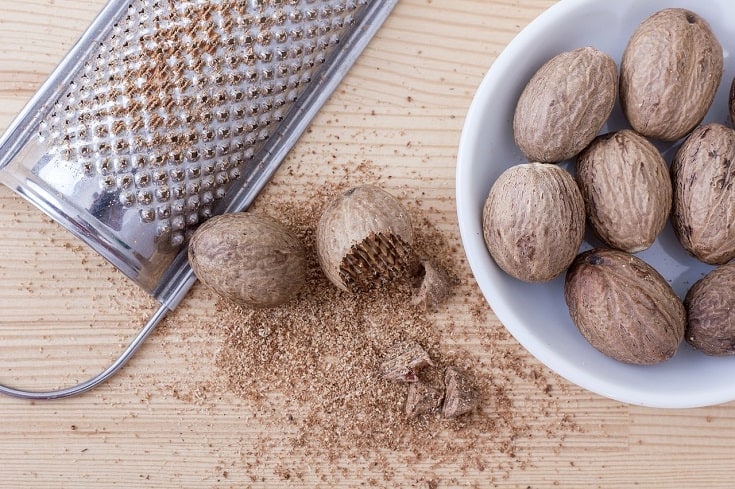
Like cinnamon, nutmeg doesn’t usually get thought of as an alternative to sugar for a healthier cup of coffee. We often miss out on its spicy-sweet tang that is sure to wake you up in the morning. Nutmeg offers vitamin supplements, the largest of which is manganese. It may not be the sweetest alternative, but nutmeg should be on your list of options to try in the near future.
Top 3 Odd Yet Amazing Sugar Alternatives:
7. Cardamom

Cardamom may not usually make your grocery shopping list, but it should be a priority the next time you make a grocery run! It’s much more popular in the Middle East, but it can also be found in the spices or international section of your local food market. Cardamom is packed with fiber and other essential minerals that could improve poor circulation. If you’re a fan of ginger, try putting a pinch of this in your coffee instead of a couple of teaspoons of sugar. You won’t be disappointed.
8. Peppermint Oil
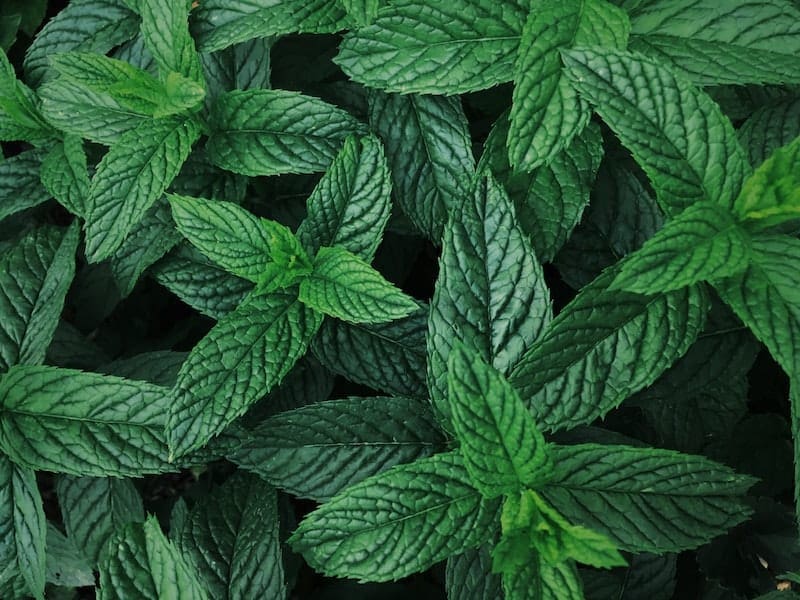
Who says we need to be listening to Christmas carols to enjoy peppermint flavors? Not us! Peppermint oil, like many of the above alternatives, is much healthier for you than classic table sugar. Many of us shy away from mixing coffee and menthol flavors, but don’t knock this one until you try it. Peppermint oil has the longest list of health benefits and preventatives in this article, so it should not be overlooked. It can help relieve muscle pain, irritable bowel syndrome, common colds, and headaches.
9. Yacon Syrup
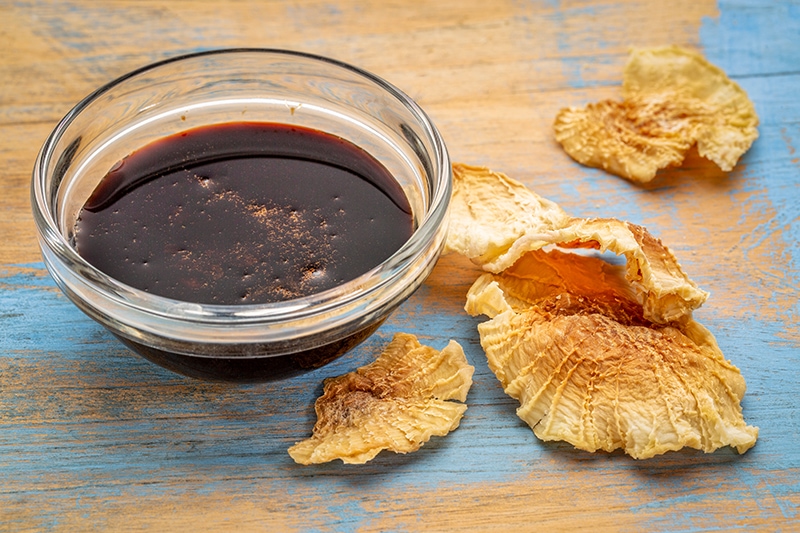
Yacon syrup is a prebiotic that stems from the Yacon plant found in South America. It is far healthier for you than traditional sugar. Often described as “crisp and sweet-tasting,” Yacon syrup boosts bone strength, supports the digestive system, and elevates the immune system. Tests run on the Yacon plant extract indicate a strong correlation between weight loss and substituting it for traditional sugar. If you’re a fan of raw honey, this could be the switch you’re looking to make!
Conclusion
If you are a coffee-lover, coffee is a big part of your life. Luckily, it doesn’t have to be an unhealthy part of your life. Choosing an alternative sweetening method can improve not only your health but also the flavor of your coffee. Allow yourself to make a subtle change to your morning coffee routine, and you will soon find that you are much better off for it.
RELATED READS:
- Why doesn’t caffeine affect some people?
- Why does coffee make my stomach hurt?
- The Surprising Effects of Coffee on Your Body
- Calories in Coffee: Quick & Easy Coffee Calculator
Featured Image Credit: Jumpstory






